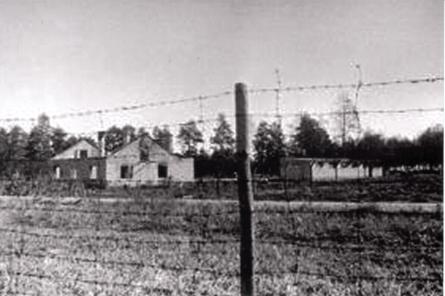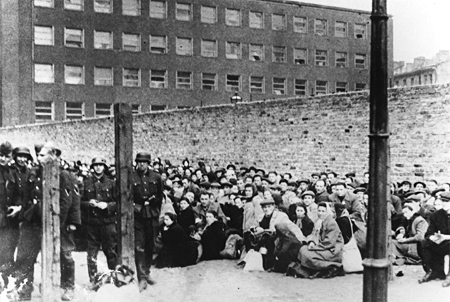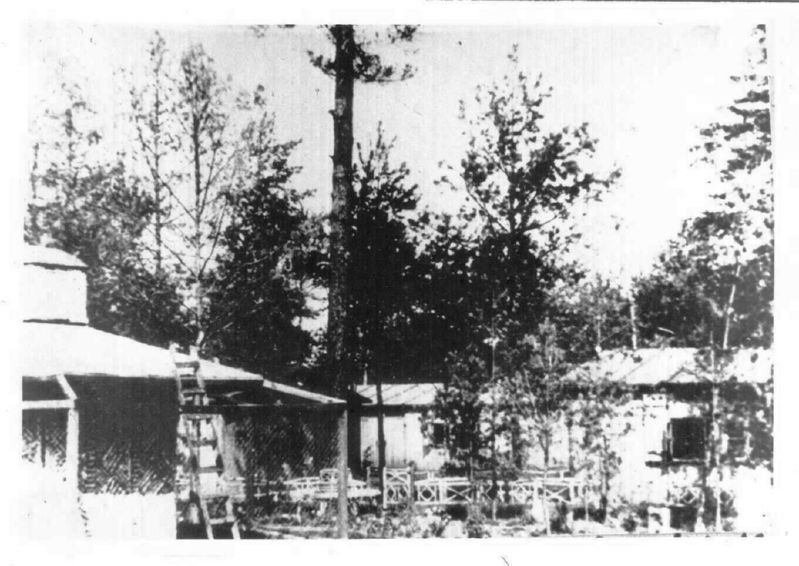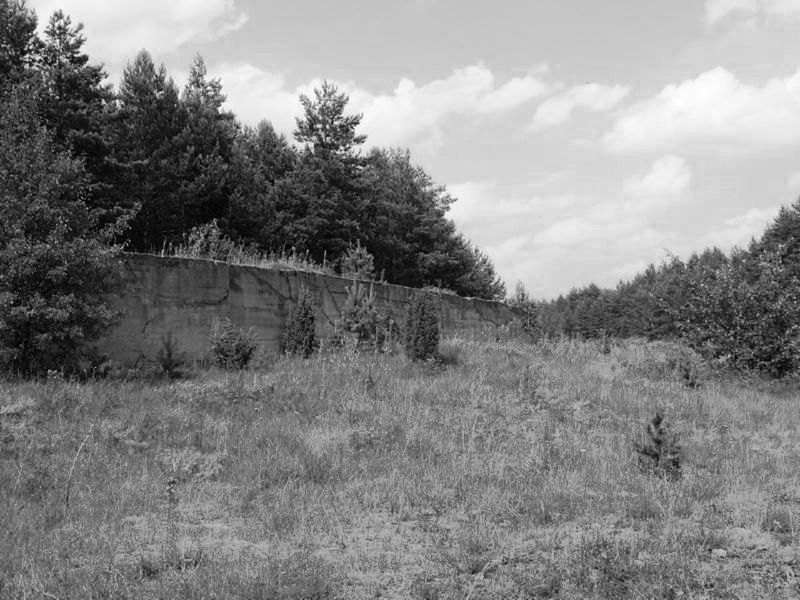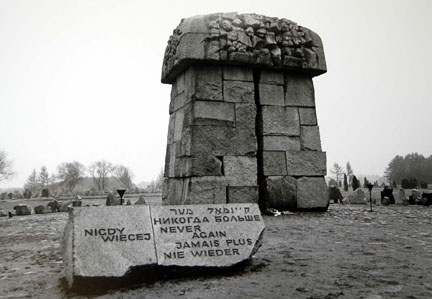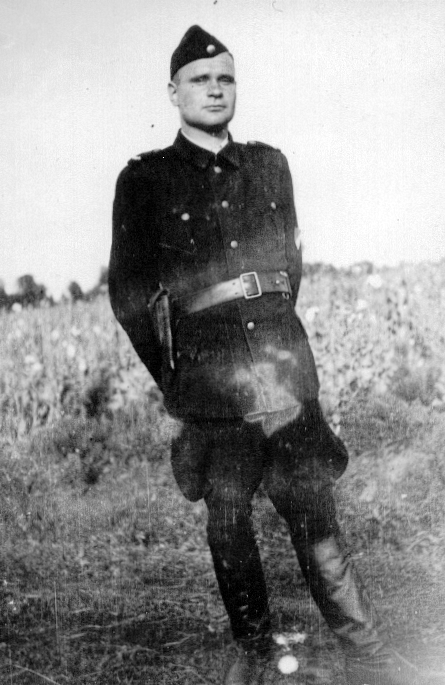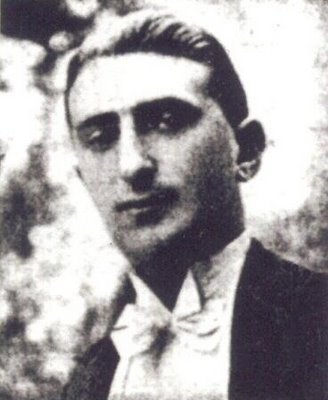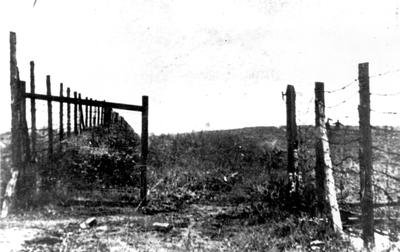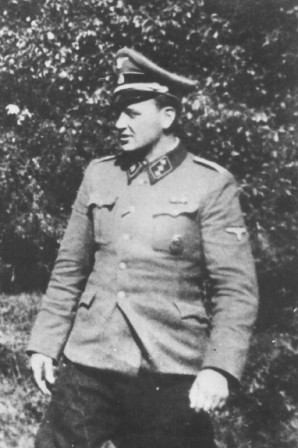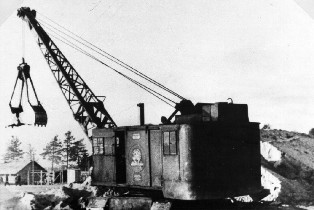Holocaust Education & Archive Research Team |
|
Survivor Stories
Holocaust Survivors Chelmno Survivors Righteous Gentiles Holocaust Recalled
| |||||||
Isadore HelfingTreblinka Death Camp Survivor Selected Extracts from USHMM Interview held on the 3 September 1992 [Photos added to enhance the text]
Isadore Helfing was born to a Jewish family in Kielce, Poland. Germany invaded Poland in September 1939. Isadore and his family were forced into the Kielce ghetto, which was established in April 1941. When his parents were deported to the Treblinka extermination camp in 1942, Isadore went with them rather than remaining behind for forced labor.
After arrival at the camp, Isadore hid in a pile of bodies. His parents were killed. Isadore survived by working in the camp. On August 2, 1943, prisoners at Treblinka revolted and Isadore escaped. He was first taken in by a farmer, and then stayed with a partisan group until Soviet forces liberated the area.
Can you tell me what your transport and arrival at Treblinka was like?
It was mostly from my, from my hometown. Was picked up in those, in those trains you know where they transfer cattle, stuff like that. Yeah.
Describe what it was like when they opened the doors. What you saw and how you felt and what you did?
The minute they opened up the door, I was facing right about two storeys dead people right in front of it laying there. These were the people that came before dead right in the trains, in those uh trains, and they pushed them out because they did, they didn’t have time to haul away because another train came in, and that’s what it was, that I saw.
And what did you do?
What I did, I saw it, we’re going all, that’s it, and I see boys dragging dead bodies to the grave you know, and I jumped right in and start dragging those bodies just like I was one of them.
And we’re pulling it to the graves. And uh so this was about three or four o’clock and you know and then the night rolls around and I could not join them, so I hide, I was hiding myself between the bodies there, so.
And then in the morning, I did start doing the same thing, but I see in that they count fifty people dragging those bodies in this particular time, and two or three were killed, they, they shoot them because they couldn’t uh drag those bodies, got sick and so on.
So I joined right into the group, and I became one of the people. So like in the morning they came you know, and they count out the people, how many people there were right among the people there. If somebody is missing so they were looking what’s happened you know, maybe he escaped or something.
So you actually broke into ……
Broken right into the… to the crew, like I am one of it. Everybody was wearing the same, the same clothes, like they were, when they came in.
Now describe in detail, if you remember it, how Treblinka was laid out?
The way it’s laid out?
Well, we, they make you go, the people in a little alley go and they say, “Man at right, woman at the left,” and over there they had to take off the clothes, and they pushed them right into the gate, and while they’re coming to the gate, they come this way and they join together, and they just went, that time I didn’t know where they go, but then they went to the gas chambers, all together.
What was the camp like? Tell me about the buildings, how big it was, where you slept, tell me how everything was?
We slept in a building just like a barrack, you know. Was sandy floor, and that’s the way we were sleeping there in those barracks. This was in the beginning, the first two months when I was there. Later they built, you know a barracks, where you can sleep like a, they call this bunks.
Bunks?
Yeah
Tell me how the whole camp was, how many buildings there were, how big it was, where the gas chambers were, describe to me?
The gas, the gas chambers were about …………. That was the size of a single garage, something like that. A garage- like that...
And then, they pushed them in there, and you know the Gestapo and everything, crying and the people were, they didn’t want to go in, they saw it, they, you know, they hit and they pushed each other right in, and they were standing up against ……, and then they gassed them, and from the other side they were sliding them, they just slid out, and another group was taken into the graves.
That was uh the beginning when I got there.
Tell me how long you were there, and how it changed over the course of time that you were there?
It did change when they put people in a mass grave, and then when the grave was filled up, and they saw with the ……..
A new low, something they dug out the dead people from those graves and put them in one place where a big fire was going, and they were burning the bodies, this was all after a month or so. And the new people came they go right in and just throw right into the grave, it was a grave, but the fire was … a special fire that was burning there.
When you got there, how long had Treblinka been going?
Oh I don’t know, maybe they was building that Treblinka, it was about a month or three weeks. Most of the people was from the Warsaw ghetto, they brought them from the Warsaw ghetto, to build the Treblinka.
Tell me about the transports, was it organised, was it orderly, how long did it take, how often did they come? Describe to me what it was like?
I, I didn’t get it.
The transports, when a transport was coming in-
-Yeah, oh you mean inside Treblinka, yeah?
Yes, once you had been there a while, and you were working.
Some transports had to wait, couldn’t get in, because inside going in Treblinka was one track and they put the one in they could not come in the other because was one track.
So they were sometimes they were waiting for hours, till this one pulled out empty and the other came in. This would go late into the evening. Not at night.
Every day?
Every day
What did the people think? Where did……………
People, the minute they got into Treblinka, they saw what was going on, the dead bodies, and they, they were screaming, that, that’s all, everybody was screaming, you know, and that was going on all day.
Was there a time when it was busier than other times or …………..?
Yeah sometimes they had a, sometimes they were waiting, and sometimes they just in and out and this ………….. went very smoothly.
Some of those trains came in, there was 80%, 90% dead, people were dead there. They kept them for so long, for 2, 3 days, until they got in there and there was, they had no water, no air or nothing, and they died right in the train.
I dragged out bodies from trains, people their heads were that big, from the heat there.
Tell me what kind of camp Treblinka was, and how it differed from other concentration camps?
From Treblinka was previously a death camp. Nobody was used for any uh hard labour or anything, just , labour was just with bodies, pulling people, from the train, and uh taking out different things, but they of course, some people, some girls, if you worked in the laundry there, not for us, just for the Ukrainians and Germans, and of course there was a kitchen there, a shoemaker, a tailor, a little quarter with all the shops, and a blacksmith, you know to put shoes on the horses.
They had horses there too and they used the horses just to bring the, they didn’t have cars, so they used the horses to go in a little town to bring supplies for the, for the Germans……… yeah.
Tell me how many of you there were and how many Germans there were, how many Ukrainians there were?
There were about a thousand, twelve hundred people, but uh by the end was between 13 and 15 hundred people in that camp, working.
Who were all of them? Were they all, they were all prisoners like you?
Yeah – the same here???
All right, now I want you to tell me again how you managed, what you did when the doors opened. Tell it to me as though you didn’t tell me before, how you managed not to go through one of those gates, and go into ………..
You know when the train arrived, you know, like they do in the …. , they pushed open the door, not open doors, were sliding and in the most like I say the most of them came from other towns.
Happens to be from my time when I came out, most people got sick there, but didn’t die, but the most trains came in and people were lying dead. And the, there was a group of people, that’s what I did, pulled out the people and that’s why piled up a big pile of dead people because the next train is coming out.
They had no time to haul away and uh, and farmers around the neighbourhood had a, there was a, they made a law, they should bring a buggy and horse and leave it at the gate of Treblinka. In the evening they picked it up, the horse and the buggy. So we used the buggy and piled them on, on the little buggy and uh some people were dragging dead people without the buggy.
Was so many people, you know. Because the grave was, was away about 500 yards, 400 yards from the train, from the railroad, and that’s why I, I survived.
Now tell me about your conscious effort to survive. Tell me what you decided to do………
We knew we’re gonna die any minute, but at that time, you know, you just you became not a human being. You know I was afraid to kill a fly, and here I had to lay between the bodies and pull the bodies and it just became like a nonsense, you know, like not a human being.
And this was in the beginning but then, then I do it, I did something different.
What kind of different things did you do? Did you have friends there?
No friends, uh we all became friends. Uh doesn’t make a difference. One is from this town, this town and practically everybody was almost my age. You know they picked up these young boys, you know 19, 20 years, 18 years, all you know about 20, 22, 23 very ………………. we found one there.
So that was too old at that time. And we saw this and then the camp got organised and what happened, how do I survive, so I would work in a lot of things there. I was hauling water. You know, there was a little, whatever you call this, well, you know you picked up the water and carried to the kitchen. I was working on that and maybe a couple of weeks, and then one time they picked up a bunch of people.
See they separated Treblinka. Was too, that the camp was number two anyways. Number, I’m not talking about number one, but at the number two camp they separate, they put the, at the gate the, was when you came out of the gas chambers, there’s another group hauling the bodies and put into the graves.
And those people, with this people didn’t get together, they was in the same field, the same people were running there, the SS and the Ukrainians made sure we didn’t get together. One time they picked me up, and you know, we had to, every morning you had to pull out all the people and they counted how many people were there.
Otherwise, there were two or three missing, they knew somebody escaped and they punished them for that. Punished other people, not who escaped, so one time they picked about 20 or 30 people from this group and took them to one side where they were pulling people to the graves.
And I thought over there, I cannot survive 48 hours. The next day, when I, then they make me hauling water and the water was at the other side where the train came in this part of Treblinka, and I saw what’s going on, and I see them crying and not looking at me.
They just went to somebody and talked, I left the two barrels of water and got into the, back to the same group that I was before, and started working so that’s why and then I got back into the same group. Over there, there was food because people came to Treblinka, and somebody had a piece of bread and that and that, so you picked it up, you found the food to eat there.
And over the other side there you were just dealing with the dead bodies, and this, I was, was uh people who just arrived. They left the clothes everything, over there, just plain dead bodies. So I got back to this thing, and that’s why, and then I remained there in the - stay with the ……….. I changed the job they would have killed me right on the spot.
But we knew anyway we’re gonna be killed, nobody’s gonna survive. So it happens like this, the way I survived is like this. In that camp there was a horse, and a two-wheel buggy, which picked up garbage, you know and we picked up garbage and took it to the grave where the people were burning and he backed it out and dumped the garbage for burning.
There were no trashcans, uh something to haul away, everything that went into the grave and to burn it. Nobody had cans there or anything, there was not such a thing what uh, this is going to burn, not going to burn.
So what happened when the guy pulled back the horse?
The horse pushed him to go backwards, the horse got wild and backed it up and went in right to the pile with the buggy. And then the Germans was around to see what’s going on. ...He shot him. There was a stable, there was five horses, and they used the horses for horseback riding and two horses for going for, to bring this materials you know, the food from, from the other towns for the Germans.
So they need another guy, and it happens to be, I was in the barracks with a guy, who worked in the stable, cleaned the horses, the uh, uh feed the horses, he said, he said “You’re going to be good.” And I substitute the other guy who got killed and account of that thing, I survived in Treblinka. I from then on, I had nothing to do with the people with the, working by the dead people.
I just used the horse, and I learned how to clean horses and feed them and water. There was no ………… , we had to go to the well and get the water. And this fellow, happens to be, was a few years older.
And that Ukrainian was in charge of that stable, when we got to the town he got for himself, uh food you know. All those uh salami and vodkas and that, so I have as far as food is concerned, I was eating then it was okay.
And then he wants me to drink some vodka, I didn’t touch it, and the guy said “Don’t you touch it.” I don’t know if they came in and they see you a little drunk, you be killed and I was listening to him and that’s why I survived. That’s why I survived that long to be in Treblinka.
Did you have Kapo’s in Treblinka?
Yeah
Tell me what a Kapo is?
There was one of my kapos he was a young fellow, he was, he came a little earlier and his name, his name is Monek, I can’t say, because we call him that, I remember that, he acted well.
The Gestapo is rough to the people, but he didn’t harm people. He didn’t harm nobody, this particular guy. So there was about 2 or 3 Kapos but he was my Kapo, this particular guy.
Tell me about the uprising. Tell me about the whole plan and then go right through it?
So I was the one who knew we’re gonna have the uprising because they came to the stable and they told me, “Listen, this is going to be an uprising.” But happens to be, was a little boy, was really young, his father was there with him in a tailor shop, and happens to, he was from my hometown. That little boy was a shoeshine boy in, at the barracks where the Germans were living there.
So, and over there they had the supply of ammunition there and he had a way of going in. He brought out a lot of, stole a lot of ammunition, he distributed to some people who knows how to handle it.
Not everybody in the camp knew there’s going to be an uprising. And I was told when you hear the uprising, when I hear the uprising, I should grab the rifle from the Ukrainian because he had a rifle laying there openly, you know the, I got the access to it all the time, but he didn’t care because I been there a few months there.
So they told me that if you hear the uprising, grab that rifle and run with us in the uprising. So, and the, and the people from the barracks what they used to tailor shoes shoemakers and if in this particular time, eleven o’clock, if any of the Gestapo comes in there to the room there, to the place, grab him, choke him, he cannot say I would just kill him there because the uprising is, is 11 o’clock.
Somehow, it was delayed and the people who knew about it didn’t know what to do. So the uprising was a little later, and maybe 2 or 3 of the Germans were killed and then we start running. The wires, you know, the wires around the barracks, was not electric. In Treblinka they didn’t make any tattoos on your arms. You wear the clothes which you wear all the time.
That was, that’s the way this camp was like that. So, so we run, we start running and I jumped across the wires and the people you know, that the patrols start shooting left and right.
I was running in the field and I saw it how the bullets popping in the ground in front of me. And then we got into the, then it got dark and I got into deep woods because we, from the distance we see black, this was woods. We were running straight into the woods, and we hid out overnight.
So the next day we didn’t know where to go, I saw a little farm, a farmer all by himself. I was with another guy, and we got into his place and we told him the story and he kept us hidden, but later he used us as to help him work, and this was uh, I don’t know what to say now.
Tell me how big an escape it was. How many of the inmates were involved. How many do you think got away and then what happened after that?
A handful got away. The rest, all of them were killed right on the spot.
How do you know that? How did you find out?
Because after the war, we tried to get together how many people survived. Was only 27 people from Treblinka. From both camps, the camp where I was called Treblinka 2. There was another one, a labour camp, they chopping woods there, they’re making roads. All together was 27.
27 people after the liberation.
How many people did you kill during the uprising?
Nobody, I was running.
How many did inmates kill in general?
The inmates killed, or the Germans killed?
How many of the Germans got killed?
About two or three.... Yeah
Now go back to when you were in the camp and tell me about any sabotage that you did or that any other prisoners did?
There were two prisoners tried to escape at night. Tried to throw up under the wire, and they were caught, and they brought them right into the Appell in the morning, when we had the Appell for counting out the people. They hang them right in the middle, everybody should see what’s happened, when they hang them up by their legs.
And they were screaming and swearing. They want to be shot. They can’t you know they ……………. And then they showed us a sample if we ever, if we do run away, and that’s what ‘s going to happen to us. And then a guy didn’t behave himself, they showed at the appell where we were standing get 25, you know there was a heavy belt over his back and some of them couldn’t even make it after that.
And of course there was a guy – we called him Lalka, he was, his face looked, Lalka is a doll. His face was like a doll, he was a murderer, this guy he went with a, had a German shepherd walking around, and he didn’t like the other guy walking, just to tell the dog and just tear him apart.
He was just dangerous this guy. And at the Appell there was another guy, we called him Kiva. His name was not Kiva, we just gave him a nickname and looked like a Jewish typical guy, you know, the way his nose was raised and stuff like that, and he was terrible that guy.
I think this guy got killed. This guy, I found out from the guys after the war was over. And there was many thousand things, I could not even think, maybe if I lay down in bed and think about it, I can give you twice as much. Tell me about when you went back and walked through the camp and how, what you remembered about where things were? Back, what
When you went back recently in the last ten years ?
Oh yeah, nothing there, nothing.
They made a big statue there, and where the grave was where they were burning the people, they put uh stones, you know memorial stones and pointed out this Warsaw, my hometown, all the towns where people came into Treblinka, every town.
It’s just like mushrooms sitting there on a big spot, and the gas chambers, they poured asphalt, just to make known this was the gas chambers. A big, a big line, but you know, but that was the size of a, whatever the size is of the gas chambers.
It’s laying on the ground. They poured asphalt, like this and they, there was the gas chambers, and this is the spot, was the spot, was the size of it. And the rest, everything is filled. Pine trees is growing up.
Did you and other prisoners talk about getting even while you were there? I mean at night when you weren’t working.
You mean in Treblinka?
Yeah
Oh yeah, there was one fellow, one appell, it was right in front of me. A guy went in and stabbed the guy who count the people and then the SS they sprayed him with bullets, and our people from the group, a lot of people.
The guy knew he’s gonna die, so he took uh revenge you know, and stabbed him right in the back and killed him. This was during the time I was at, I swear was in the Appell, means that everybody gets off before they go to work and they count them out how many people is here, how many went at night to sleep, and in the morning if anybody is missing. They didn’t want nobody to escape there.
So he killed a German?
He killed a German. And he was shredded from bullets, that guy who did it. But he knew it, he went for ………….
Night came in with the train, there was a lot of people who tried to get out of the train, they tried to go underneath the train. When the train goes back out, then he can run out and escape.
And all of a sudden, one is going through so everybody seeing that whoever was capable, done the same thing. When the German saw it and he shoot him right there under the, you know behind right by some kind of item, so he can hang on to it, and the train would go out and he, then he would try to escape.
People tried to escape when they were sorting the goods, you know, the clothing, and packing during the day into the train. So other people got stuffed in, got inside, and they jumped during the time, when the train was going, I don’t know where the train was going, but there was the clothing, people’s clothing, and they jumped out into, through the little window.
In other camps when people arrived like at Auschwitz there was a selection made, and mothers and children, and people of 50 and over were often killed, but people who were able to work were chosen for work and for life. Describe to me how arrival at Treblinka was different.
Well each camp probably was a different system. What did they have, I never heard it.
They had selections, were there selections at Treblinka?
At Treblinka - no selections whatsoever. They didn’t take out any people.
Did they, at Sobibor they made a pretence. They gave people a receipt for their belongings?
No. No. Everyone knew what was happening in Treblinka. True, the minute they opened up the door, we saw what was going on.
Tell me a little bit about choices, the choices the people who arrived there had, and the choices that the guards had, the Ukrainians or the Germans. Were they just following orders?
They run the whole thing. The Ukrainians they were following the orders from the Germans, but they can do anything they want always. They could have done it. They killed a lot of people, they watched ….. and everything. It was mostly run by the Ukrainians.
What kind of choices did the prisoners have?
There was no choice.
In all your years there, tell me about any people who helped you at any time. Like the guy whose horse you watched.
Yeah, I help with my co-worker there. He helped me. He told me, “Don’t do that, don’t do that.” and on account of him I was, you know, I was young that time, you know, so he, he was much older than I am. Do that and do that and that was the help I had.
Describe for me how, I don’t remember exactly what guard it was that you had, but you were worried that in the uprising you might have to kill him. Describe to me that whole relationship as though you haven’t?
There was a Ukrainian guard. He wasn’t there in particular.
But tell me the whole story, tell me who he was?
He was, he was a Ukrainian he took care, that his job was to take care of that stable there. Uh to bring all this supply of food, he was the one that supposed to bring and he watched the horses and all that stuff.
He was the commander from, of the stable. That’s all. Germans used to come and they told, “Fix me up this horse for riding,” so he came, he just stepped up right away.
Tell me when you were working in Treblinka tell me what a typical day was like, when you had to get up and how long you stood on the Appells, when you went to work and when you quit?
Oh we get up in the morning, probably was about, I don’t know like 6 it was between 7, 8 o’clock. Then they counted out the people and everybody went to his own, with the Ukrainian was standing waiting and went to his own group, back to the same job.
And then how long did you work at Treblinka?
Well, there was no time, but it was not late at night. Till the transport came in and it’s all finished up and they went to the gas chambers and they put them to the grave and then it was over.
And they count again how many people was in the morning, in the evening and that’s all. And then we went into the barracks, to sleep and that’s all.
Was there any religious resistance? Did people pray? Prisoners?
Oh yeah, when they arrived, there was always those people, they took out the shawl you know, wrapped around them and fell to the ground ………… Many people like that.
So the minute when they arrived and they had to go out from the train, from the cattle train, and they fall to the ground and pray so loud, so was a lot of religious people came along, uh nothing happened.
They go, if they see they didn’t want to go – they just kicked them, beat them and make sure they go in there, takes off his clothes and goes right in….. Was horrible.
Could any of you who were working with them help them at all?
No, no, no. We cannot go and do anything because everybody, because if we go over and try to help them or something, they shoot right away. There were many times during the day, if they didn’t like the guy who worked, they shoot them right on the spot, don’t care what it is.
Did any of you pray or support each other in friendship?
Yeah, well we didn’t pray, uh we didn’t pray, I got up in the morning, in the barracks, and was right in front of me I see four or five people ……… and hang themselves.
Then we run over, “Don’t do it.” Uh then the third guy says, “Don’t disturb them, if he wants to …..,” because he knew he wouldn’t make it you know. He got a little sick and that and then, so he hang himself, instead of being tortured and killed. This I saw quite a few.
Right in my section, it was all over because there were so many people there.
What other kind of resistance was there among you people who worked there?
What do you mean by resistance?
Any kind of resistance? Mental resistance, did you joke with each other?
No, no, no, no. There was no joking. But later in the evening in the barracks you know there was like a court and a guy was singing, they let him do that.
And Sunday, nothing, was free. Nobody was in there. No transfer came in and that guy was singing the Jewish songs, you know, and everybody was crying.
So that’s what is was.
Tell me about the sports that were arranged there, some of the soccer and…
Yeah, I just wanted to say that on Sunday we played soccer and the Germans were standing around and watching us. As a matter of fact I played soccer.
This finger is from Treblinka. I got up and my finger was like this. I pulled it back, and I still have a little nerve, here, yeah I played soccer there.
Was there an orchestra there?
Yes.
Tell me about that, tell me.
Yeah this was late in the game and when they uh the transport arrived and people recognised one another, and you know oh he’s a violin player, there, so they took him out and he joins the orchestra.
They didn’t play the orchestra while the, the people went to the death, you know to the gas chambers. Was a different time you know, they played the orchestra. There was an orchestra.
And what about the boxing match?
There was one, a famous boxer in Europe and another guy on Sunday and they had a boxing match, just like the roosters, who killed, just supposed to kill them dead, that’s it.
That’s the way the boxing was done. Wasn’t going to the regular time. Just there were not so many boxing, just one or two fights.
How does everything you saw make you feel about humanity?
The time when I arrived there, I became like a, a, I don’t know how to explain it, just didn’t care, like a void person. Just didn’t bother me because I know I’m going to be dead, now or in five minutes, or ten minutes and I just became like a person who has been doing this for years.
Tell me more about how the uprising got started and organised?
There was one, he was from Warsaw, a fellow very intelligent, he was an officer in the Polish Army, from professionally he was an engineer and he was the camp leader.
The leader, I forgot his name, he carried a Polish name, and he was the commander at the Treblinka camp, you know with the Kapos and stuff like that. So he got the orders and he told the Kapos what to do, and actually we didn’t have bad Kapo’s there in Treblinka.
Was one, two, two Kapos. The main Kapo was as I said a young fellow, we called him Monek. Whoever, was in Treblinka knows him.
Did everyone know about the Uprising?
So they told certain people who were, like at the tailor shop, who was the foreman at the tailor shop, and from the blacksmith, and all those….. there were shoemakers, and carpenters.
How did they decide who to tell and who not to tell, and then did everyone try to go?
The Uprising came along and so everybody screamed, “Run, and run out,” and that’s it.
You know who has the ammunition, use that and that’s it. So there was a little bit of ammunition. That’s what the shoeshine brought out a couple days ago.
The Sobibor uprising was triggered by notes that the people found in the clothes that were the people from Belzec and the notes in the pockets said, “Take revenge.” Tell me about …. do you know about that?
No, No
Did you ever hear about that?
About the taking of revenge? No, No. There is no revenge, who are you going to take revenge there? With the empty arms against uh who were sitting on the little things, you know upstairs with the machine guns, stuff like, what kind of revenge you got. We know we going to be dead anytime, so might as well do that, kill all what we can and run out.
Whoever got saved, got saved. In this respect I was lucky, I didn’t get killed. I was not a hero, to be, to escape but just happened, all the bullets and the, was falling right in front of me and didn’t hit me. People got hit in the legs, and fell down, couldn’t go, couldn’t go on any further.
Tell me what happened to your family, and also did you think about them when you were there?
Sure I think about. I knew they right around there someplace. Or think that they’re on the fire burning, that’s all. But you got so much with yourself you would not think of anything.
You became yourself an animal while you were there you know. Didn’t bother us, we knew that tomorrow will never come.
But you broke into Treblinka so that you could rescue your family.
No they came before I got there. One day before. Remember I said I walked out from the appell and go out, they chose me to get, to go out and they keep me there, because they left in the ghetto 300 people to do work.
To remain in the city, every city I guess got the same thing, and they remained a little portion, they make a little ghetto for those people and they done you know work, tailoring or was some sewing, so they took me out to remain so that and my family and my parents they just went straight to Treblinka.
How do you feel about the whole thing?
I still have nightmares. Still have nightmares. That was just horrible.
Tell me about before being transported there. Tell me about when the war first started and how life changed and what people thought was happening?
We didn’t know that we going to get, they going to kill us out, but we know what’s going to, we gonna have a bad time.
You mean when the war broke out?
Sure we got the, just like any place else, was the same system. So the Germans took over the country, so there was rationing and there was a hard time to survive, but somehow we survived, but we didn’t know this is going to happen.
And then they put us to the ghetto, and the ghetto was terrible. So like you hear about the Warsaw ghetto, same thing was in our hometown, identical same thing. People starving and dying laying on the, laying on the sidewalks so that’s what it was in the ghetto.
What would you like to say to future generations?
Well, the future generations around the world, well I know would….. never again, or something like that. This is the future generations, I guess they know that. Anything gets suspicious, uh, where do they go, right into the fire.
Is your survival an achievement?
Sure, there’s a lot of people survived in different forms, in different forms. People survived, people got killed, after the liberation people go this you know. There’s a lot of different things. It’s a survival myself and take a gun and kill a German, no I didn’t after the liberation, no was not in my thought but I just hate them, what they did.
Can sit there for hours, if I get uh just sometimes, I skip it, can’t get this figured out.
Can you think of something you want to say?
Nothing... There is certain things, but I don’t, you need a whole story, big story, I don’t know. Whatever you can do? Ask me some, maybe I’ll remind myself.
Describe to me where the trains came in and how long each transport took.
A transport, there was a transport coming in between 8 and 10,000 people. Long, long train packed up. And uh took maybe an hour, an hour and a half, two hours.
I mean the people standing right, waiting till the train gets in the right spot and they just slide up the two doors, and out, out, out. People have to run out not just walk.
The 8,000 people would be gone in two hours?
Yeah
Tell me once more how the buildings at Treblinka were laid out. Where the train came in, where the gas chambers were?
The train came in, lets see this way, then, I sat a little distance there, don’t know how many feet- two , two hundred feet, a hundred feet or, was a arch and was like a with wires around where the people uh they say, “ Go straight here, you’re going to take a shower.”
And the men right, women left and they told them, “Get undressed just nude,” and then they were going in their barracks and the women go there and then they join together.
And they went into the gas chambers. At the gas chambers was very rough people standing there, pushing the people, hitting, hitting, hitting... children anybody, uh, whole families.
Then they got into the gas chamber and it’s all packed up, everybody standing just like – they close it. On the other side a few minutes, slid open the doors, pushed them, this was a hard job because everybody was stuck to each other.
You know you have to break them apart, you know, apart and put them to the holes where the fire was. So in the beginning they piled up the dead people in big graves, filled it up, throw lots of dirt on top.
Then they dug another big hole there. While I was there in the same time came a, just like you see those big cranes digging the dirt, that’s the way they picked up the people from the graves, turn around, and throw right on the fire.
Just came, turned there, all the way. I didn’t work there, but I saw it. I was passing by back and forth. So they burned the bodies. They burned, they didn’t want to have a grave with bodies, just to burn them and that’s what was going on the rest of the time.
So at, I can draw with a pencil and tell you exactly how it was.
Go ahead, start and describe.
Yeah, this is the main entrance, where the train came right on the side. And this is the railway for the train and this is a cattle train coming around here. That’s the cattle trains here.
And here was the Ukrainian, Gestapo and the labourers, the workers would open up the doors, slide up the doors, and there were coming on here… so the people, they make them walk, walk in here to the, here is an arch, is an arch here, and said men right, and women left.
So the people came out from the train and told them to go right in here to that and they gonna have a shower, so the people were walking from both sides into that place with shower.
When they walk inside there and so the people here inside they had to get undressed and there were, they were walking right into the very first two gates here and the people come in right…..
So the men went right and the women left, and they got undressed and they told them if any has valuable things, gold, to put them in this little basket right there, and they were guided right to this rail.
This was a rail, wire fencing, tall wire fencing and the people were pushing each other right in, and the Ukrainians and the Gestapo were standing right there and they pushed and chased them into the ….. thing, to the gas chambers was.
Another group of people take the people out from the gas chambers and put them right there, and here was a mass grave, and here was a mass grave.
But this was, this was isolated. This part where they pulled out the dead bodies to the isolated, and here was a big grave right on this hand side, was a big grave.
And here when they went to this grave, there was the gas, the gas chambers was right over here. That’s the gas chambers. And they, they got them right at this, this big, big grave here.
Now our barracks was here. This was the barracks here. Not far, not far away from the graves, and her was a kitchen. Here was the kitchen right here. The kitchen was this side.
And here and here was the, on both sides was the German’s upper office of and sleeping areas right there. And this was all here, and here was the stable and here right exactly was the stable.
Here was the stable where the horses are – and that was the whole Treblinka right here. There was a bigger amount here, bigger space.
How many gas chambers were there?
About 14 gas chambers
Tell me how the gas chambers worked?
Oh they got into the gas chambers, they pushed them in , all of them, women, men, children, all everybody right in there, and they closed those doors, slide, sliding doors, they closed it and they gassed them.
So from the other side, was another group of people, but the other group never got contact with this group of people, so their job was pull out from the gas chambers and pushing into the mass grave.
---------------------------------------------------------------------------------- Authors Notes:
Isadore Helfing was incorrect no Germans were killed in the Uprising. Kurt Kuttner was wounded. Lalka – the prisoners nickname for SS- Untersturmfuhrer Kurt Franz Kiva – the prisoners nickname for SS- Oberscharfuhrer Kurt Kuttner The murdered SS man was Max Biala who was attacked by the Jewish prisoner Meir Berliner on the 10 September 1942. Marceli Galewski was the Jewish Lageraltester – who was in charge of the Uprising. The Sobibor uprising was triggered by notes found in the clothes of Jews brought from the Belzec death camp, not Treblinka as stated in the transcript. The Rail – could possibly be the “Tube” in the death camp, that led from the undressing barrack to the gas chambers. There were 13 Gas chambers, not 14, 3 in the Old Chambers, and 10 in the new gas chambers constructed during August / September 1942. (Yankiel Wiernik).
Sources: USHMM US National Archives -College Park
Copyright Victor Smart H.E.A.R.T 2010
|

